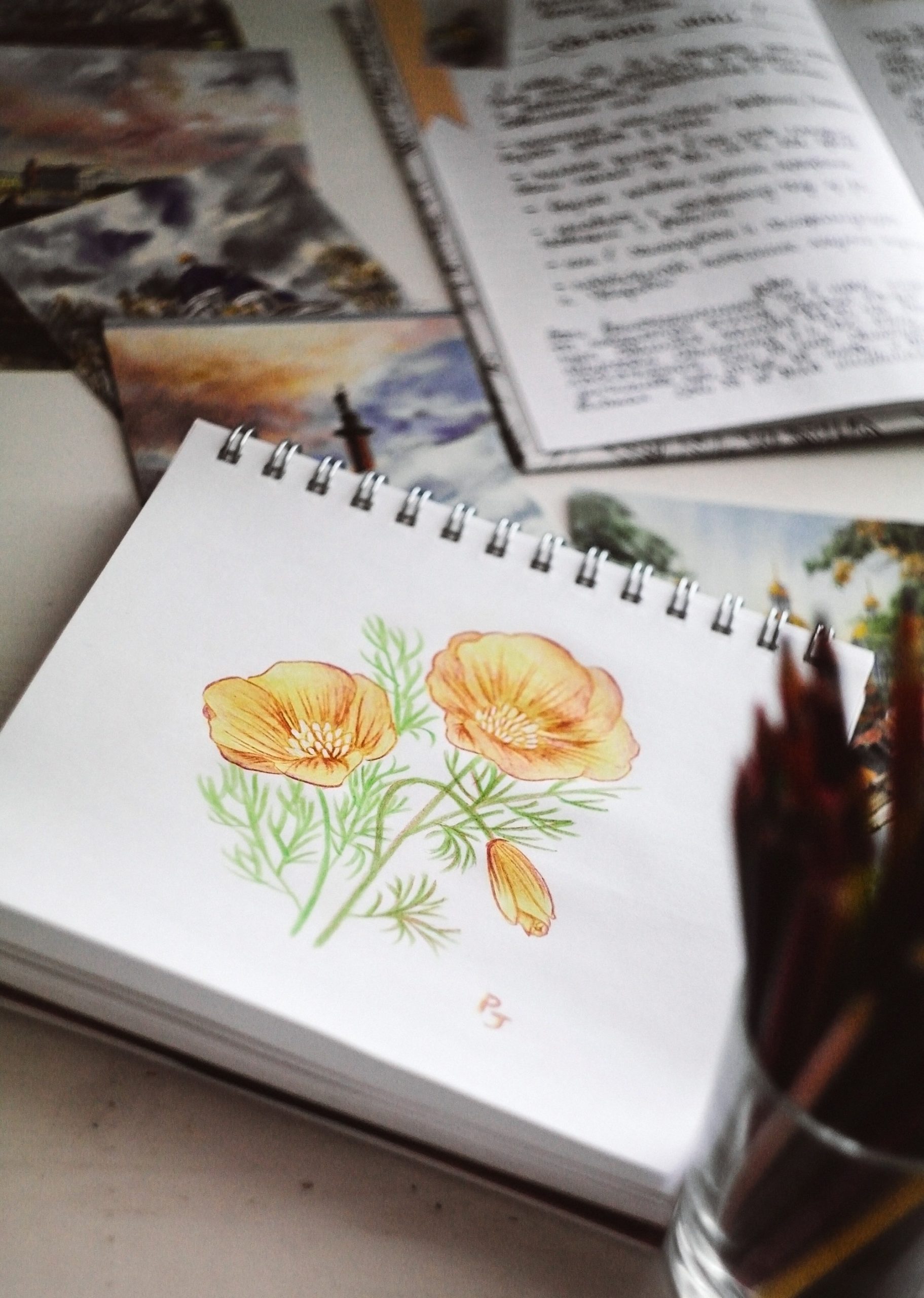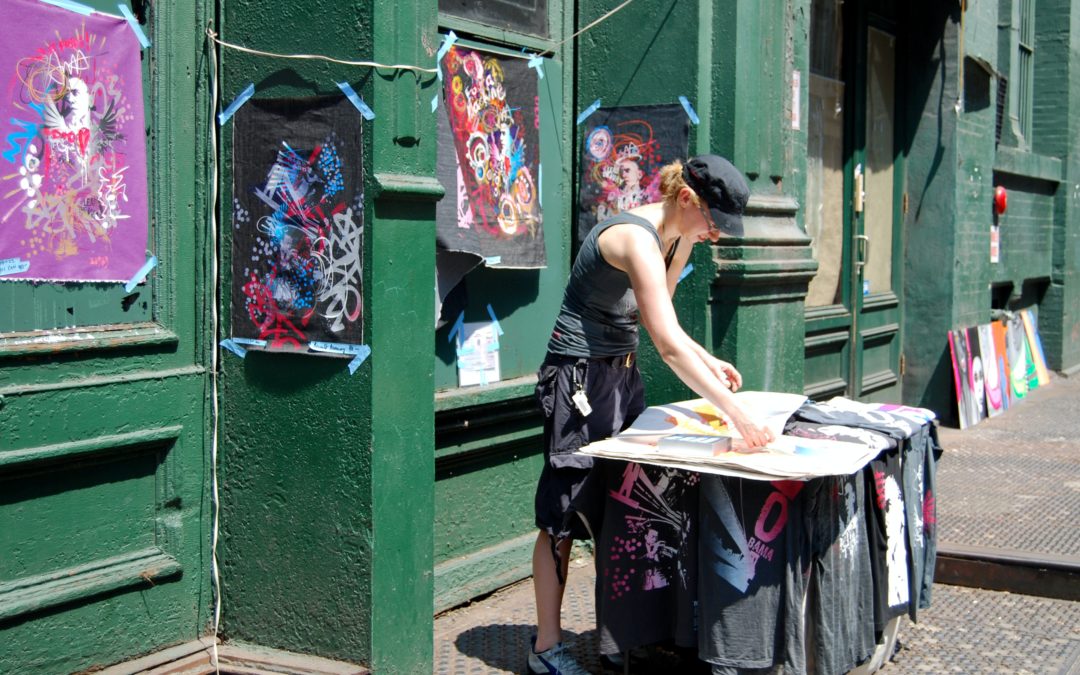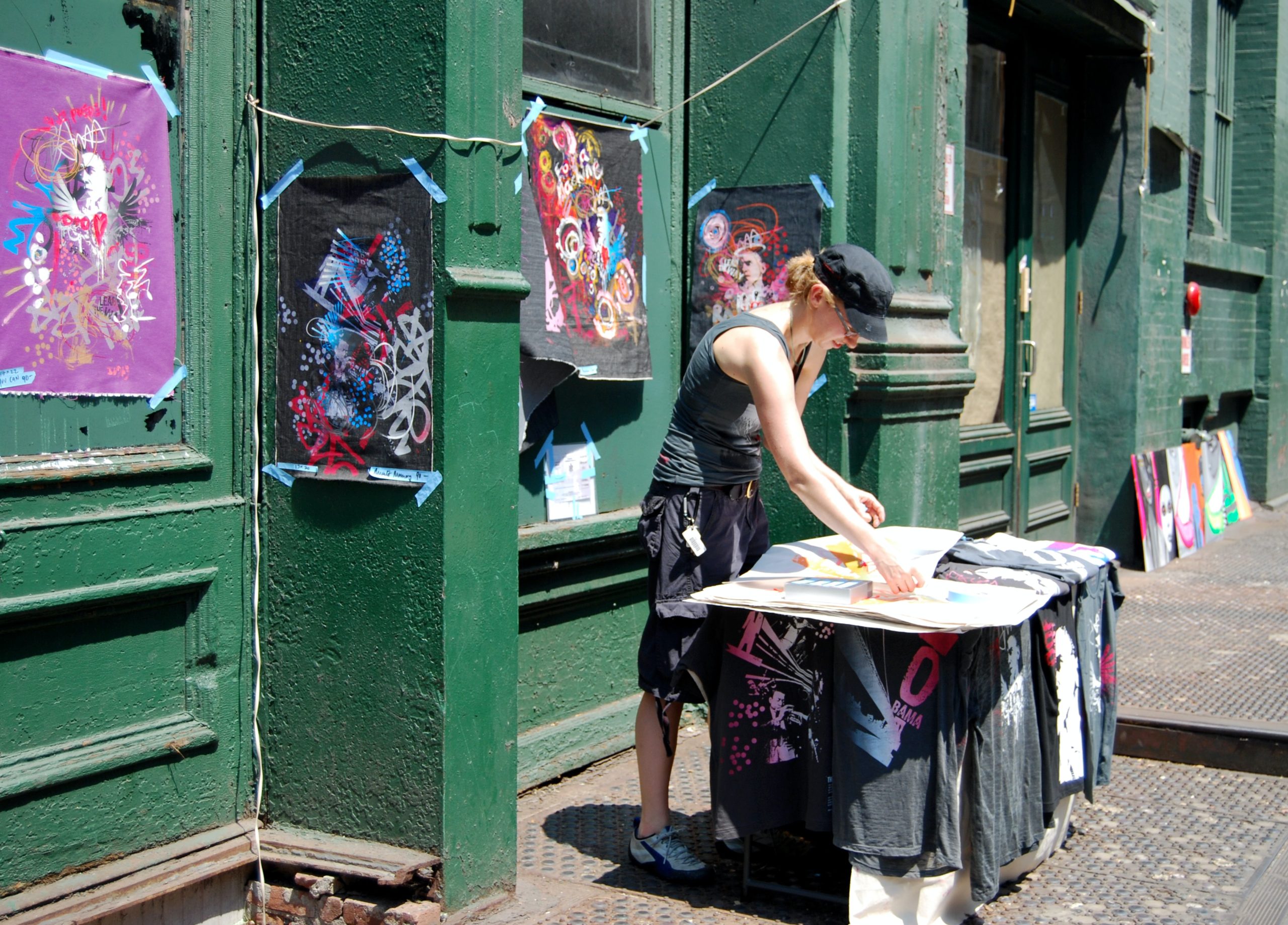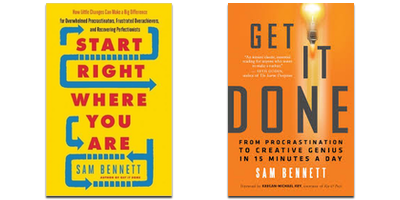
A Revealing Exercise in Doodling

Here’s so here’s the little experiment I want to do with you guys.
I know you’ve got your paper and your pens ready, because you guys are known doodlers. If you don’t for some reason, grab a pen and a piece of paper.
Take your pen and I want you to draw a flower. Don’t think about it. Just draw it right now. Draw any flower you want. You can even just write the word “flower”. However you want to do it, just draw a flower
This version of you that just drew this flower… When I said draw a flower, any flower you want, that’s version one of you.
Okay. Now, new piece of paper, maybe same pen, maybe different pen. This is version two of you.
First, I want you to think about which flower you want to draw, which flower would be best to draw, which flower could you draw the best? Which flower haven’t you drawn in a while, or maybe one you used to draw, but you haven’t drawn in a while. Think about whether or not you have the skills to draw this flower. Think about what other people will think about you if you draw this flower. Think about all the other people who have already drawn flowers, and all the other people who were thinking about drawing flowers.
Do you really want to compete with them? I mean, maybe tomorrow would be a better day to draw a flower. Maybe even not a flower, maybe a star, maybe a barn, maybe a goat, maybe a goat in a barn with a star, maybe other flowers, maybe…
Are you getting my message. Have you seen through my clever road?
Stop second guessing yourself. If someone is outside your door right now and wants to give you $500 for a drawing of a flower, what do you have? You have a drawing of a flower and you could cheerfully receive that $500. You would say, yes, I have a flower.
What does version two get? How much influence does version two have? And what’s really sneaky is that you guys (I know you do this because I do it too), there’s something about that kind of thinking and overthinking and second guessing and double thinking and reconsidering and planning, planning, planning, and getting ready to get ready, and self-doubt- that feels good. That feels responsible.
One doesn’t want to just go off willy-nilly drawing flowers without any consideration. It seems better to sit and ponder. There are very few things in life that benefit from pondering.
I’m going to go ahead and say you were an artist, you know why? Because you just drew a flower. It’s a verb. If you’re doing it, you get to call yourself the verb. If you’re writing, you’re a writer. If you’re drawing, you’re an artist. If you’re singing, you’re a singer. If you’re teaching, you’re a teacher, right?
I’ve had people tell me I have no idea what I want. I’m soaked directionless. I never seen anything through. I’m still confused. And I say, okay, well, tell me what you’re thinking about. And then you go, well, I’m thinking this, this, this, and this. I’m like, right. So that’s not confused at all. Like that’s very clear that you’ve drawn a flower.
I was talking to somebody yesterday and I was helping her plan out a class she had in her mind for a long time. I said, well, how much you want to charge for this? And she was like, Oh gosh, I don’t know. I mean, that’s really the question that’s so confusing. I don’t know. And I said, okay, stop. Let’s do it the other way- how much money would you like to see coming from this?
And there’s this long pause. Well, I don’t know. I asked her, what number pops into your head first? She said, well, the number that popped into my head first was $10,000, but I mean, I… and I said, stop fine, $10,000 done.
And how many people do you think you could get in this class? I get another long pause. I’m like, okay, again, what number popped into your head first. She said 20? I’m like, great. So we have a good, better, best of 10, 15 or 20. I always want you to set three levels of goals. It’d be like, I have to be able to hit this goal. This would be great. And this would be a home run.
So good, better, best of 10, 15 or 20. Let’s charge $900 for this class. And it’s a 90 day thing- that’s nice, like $10 a day for this class. 900 bucks get 20 people in it, then you would have almost $20,000.
And she was like, wait, what? And I’m like, no, you decided, you knew the answer to all these questions. The answer bubbled up for you and then you swatted it away. No, no, that can’t be no, no, that’s not gonna be right. Oh, no, I can’t charge for that. Oh, no, maybe it’s in beta. Maybe I should charge less.
Quit it. Just quit it.
I want you to practice going with your first impulse. I want you to really start trusting your first thought. Especially in the areas where there’s no consequences, like drawing a flower. There’s no such thing as failure. Failure is just taking score too soon. Disappointment is taking score too soon. People don’t fail. They quit and you haven’t quit. You’re here. You’re right here with us. You’re doing it. You’re growing and changing.
Right now, you are harnessing the power of your creative energy. Right now, the transformation is happening. Maybe it didn’t happen in any of the previous days of your life. Maybe you’ve got 50 years that not happening. And right now it’s happening. That’s a miracle, you’re positioned for a miracle.
So that’s my little flower exercise. Draw a flower or think about drawing a flower. Which is more productive?









